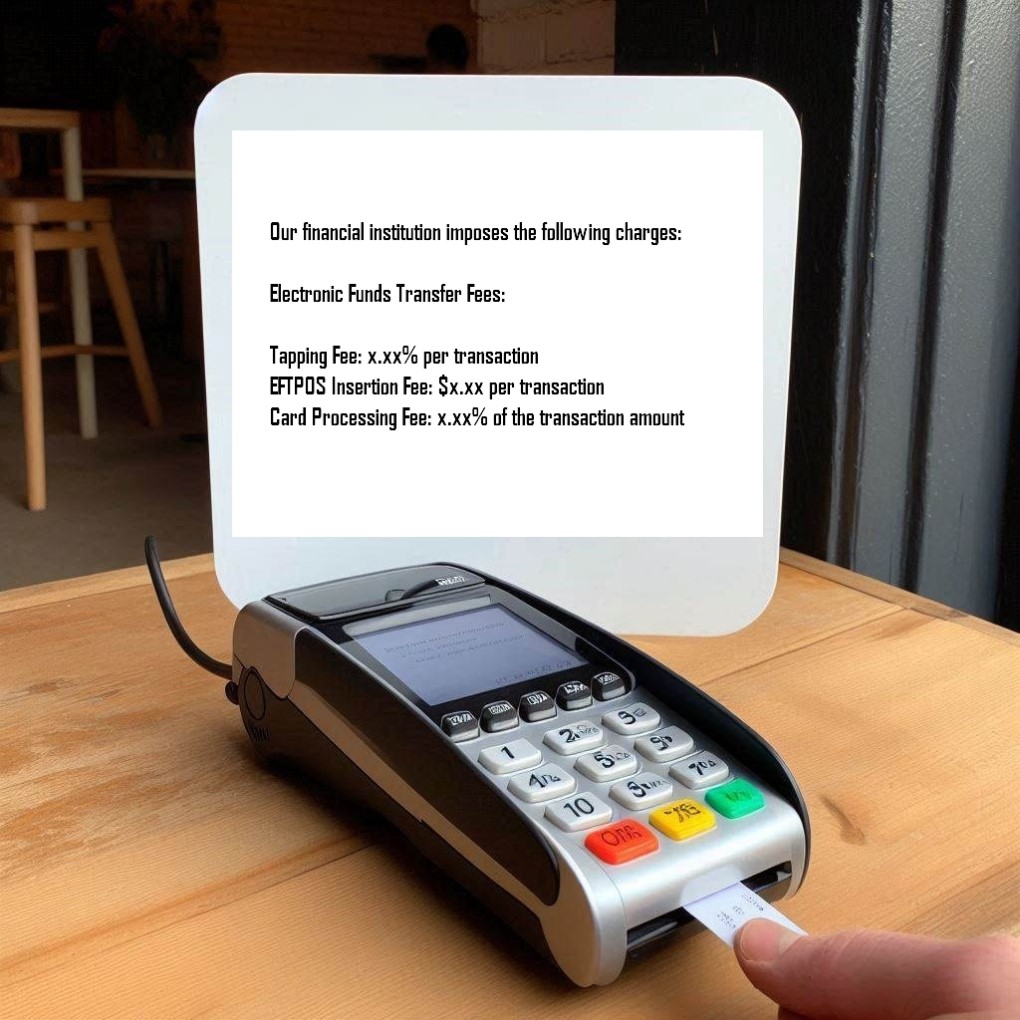
I've seen the surcharge debate from all angles. After many years, it's still a hot topic for retailers, and I'd like to share some insights from my years in the trenches.
The Surcharge Landscape
In my experience, most businesses fall into one of four categories when it comes to surcharging:
Manual Surcharge Approach
Every electronic transaction puts an extra fee, which the retailer sets.
The "Cash Incentive" Method
Spend over a certain amount in cash, and the customer snags a gift, e.g. a free can of drink.
Automatic surcharge
The bank sets the fees, and the retailer puts what the bank says in their software.
It relieves the retailer of much of the onus if there is an issue with their rates. The disadvantage is that many EFTPOS costs are not included, so the retailer is charged more than they get back.
Free EFTPOS provider does it all.
The EFTPOS/POS System provider automatically does all this. In practice, the customers often get charges that either underestimate the EFTPOS prices as they do not include all EFTPOS charges or sometimes rip-off prices if the EFTPOS/POS System provider is trying to maximise profits. You will pay these charges to the customer in goodwill.
Free EFTPOS is a myth; someone is paying for it.
No Surcharge Policy
All cards are welcome, with no extra fees.
Our POS software can handle all these approaches easily. We've ensured it's flexible enough to suit your chosen strategy.
Our Personal Choice
We've done the math for our business and chose option 4—no surcharges. As far as I know, we're the only ones in our market taking this approach, and it's working well for us.
If You're Going to Surcharge
If surcharging is the right move for your business, here are some tips I've picked up along the way:
Check Your actual Surcharges
If you do decide to surcharge, it's crucial to check these scenarios:
-
What's the charge for tapping?
-
What's the charge for insertion?
-
What credit card rates are your customers being charged?
Check your customers' charges regularly. The ACCC asks you to check once a year. An unreasonable surcharge can turn a happy customer into an angry ex-customer faster than you can say "EFTPOS."
Double-Check Your Setup
We receive many support calls from people who still need to set up their surcharges correctly. It's worth taking the time to ensure that your POS system is charging what you desire.
Be Transparent
If you charge a surcharge, the ACCC demands you put a sign that you are doing this.
However, here is something that is discussed little but should be. Bank fees for these services are much higher in Australia than overseas. I cannot see how banks can justify these fees. It's a raw deal for Aussie retailers.
Why should retailers take the heat for these high charges?
Consider putting up a sign like the above stating the rates and why you charge these fees. It is not you but the bank.
Think Twice About Rejecting Premium Cards
It's often better to accept premium cards like American Express with a surcharge than not receive them. Many corporate customers use these cards, and their people will not buy from them if you don't accept them.
Final Thoughts
Your POS system can handle surcharging and is designed to be flexible enough to accommodate any approach you choose.
Frequently Asked Questions About Surcharging
Q: What is surcharging?
A: Surcharging adds an extra fee to a transaction when customers pay with specific payment methods, often credit or debit cards.
Q: How do I implement surcharging in my POS system?
A: We suggest configuring your POS system settings to include the charges.
Q: What are the different types of surcharges?
A: Common types include a flat percentage fee for credit card transactions and variable fees based on the card type (e.g., an American Express surcharge).
Q: How do I calculate the surcharge amount?
A: Calculate the surcharge by multiplying the transaction amount by the surcharge percentage. For example, if a transaction is $100 and the surcharge is 1.5%, the surcharge would be $1.50.
Q: What is the maximum surcharge I can charge my customers? A: While there is no set maximum surcharge, it should not exceed the merchant fees you incur. The ACCC recommends that surcharges reflect the actual cost of accepting the payment method.
Q: Are there any disclosure requirements for surcharging?
A: Businesses must clearly disclose any surcharges to customers before the payment is processed. This includes displaying signs at the point of sale.
Q: What do customers think about surcharges? A: Customer reactions can vary; some understand surcharges due to rising costs, while others view them negatively and may avoid businesses that impose them.
Q: How often should I review my surcharging policy?
A: It is supposed to be done at least once a year.


